Introduction
Parakeets, those vibrant and sociable members of the parrot family, have earned a special place in the hearts of bird enthusiasts and pet owners worldwide. Their playful antics, charming personalities, and colorful plumage make them beloved companions. As responsible caretakers, we strive to ensure our parakeets live healthy, fulfilling lives, and one of the essential aspects of their care revolves around their diet. A common query that frequently arises among parakeet owners is whether these delightful birds can safely consume sunflower seeds.
Sunflower seeds are a ubiquitous component of many birdseed mixes and are a favored snack for humans. However, the decision to include sunflower seeds in a parakeet’s diet requires careful consideration. The nutritional value of these seeds, their potential benefits, and their associated drawbacks are vital factors to weigh in order to provide the best care for our feathered friends.
In this comprehensive exploration, we will address the question: “Can parakeets eat sunflower seeds?” We will delve into the dietary requirements of parakeets, the nutritional content of sunflower seeds, and the impact of incorporating these seeds into their daily meals. Armed with this knowledge, you will be better equipped to make informed decisions about whether sunflower seeds should have a place in your parakeet’s diet.
Join us on this educational journey as we uncover the facts about sunflower seeds and their role in the lives of these delightful birds. By the end, you’ll have a comprehensive understanding of whether sunflower seeds are a suitable addition to your parakeet’s nutrition, contributing to their health and happiness.
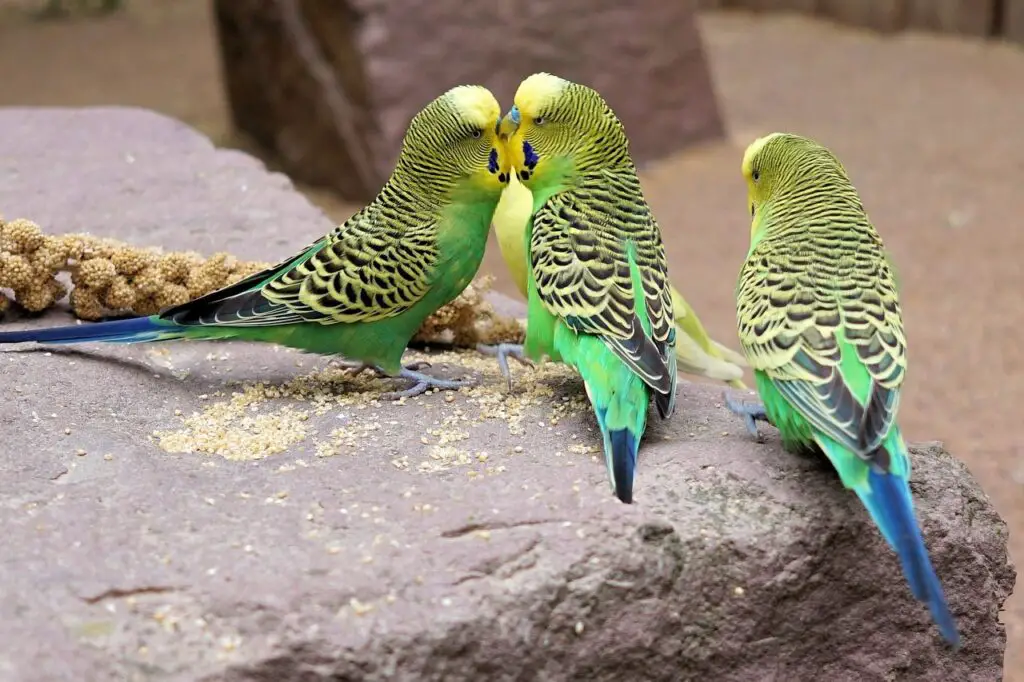
What seeds can parakeets eat?
Here is a list of the most common foods that parakeets will eat: Seeds (millet seeds, sunflower seeds, safflower seeds, and canary seed) Nuts (acorns, hazelnuts, peanuts, pistachio, walnuts, and pecans)
Parakeets, also known as budgerigars, can eat a variety of seeds as part of their diet. However, it’s crucial to offer them a balanced diet rather than relying solely on seeds. Seeds should make up only a portion of their daily food intake. Parakeets can eat:
Budgie Seed Mixes: Commercially available budgie seed mixes are designed specifically for their dietary needs. These mixes usually contain a combination of millet, canary grass seed, and other small seeds.
Millet: Spray millet is a favorite treat for many parakeets. It’s high in carbohydrates and can be offered as an occasional snack.
Canary Grass Seed: This is a staple in many budgie seed mixes. It provides essential nutrients and variety.
Flaxseeds: Flaxseeds are a good source of healthy fats and can be included in their diet in moderation.
Hemp Seeds: Hemp seeds are rich in protein and healthy fats. They can be offered occasionally.
Chia Seeds: Chia seeds are nutritious and can be sprinkled on their food in small amounts.
Pumpkin Seeds: These seeds are a source of vitamins and minerals and can be given as treats.
Remember, while seeds are a part of their diet, they should be complemented with fresh vegetables, fruits, high-quality pellets, and the occasional treat. A well-rounded diet ensures your parakeet gets all the necessary nutrients for optimal health.
Can budgie parakeets eat sunflower seeds?
Can Budgies eat sunflower seeds benefits of sunflower seeds for budgies is great. Sunflower seeds are one of the most nutritious foods you can feed to birds.
Yes, budgie parakeets can eat sunflower seeds, but it’s essential to do so in moderation. Sunflower seeds are high in fat, and excessive consumption can lead to obesity and other health issues in budgies. They should be considered a treat rather than a primary dietary staple.
Offering sunflower seeds in their shell can be beneficial because it encourages the budgie to work for its food by cracking the shell open, providing mental stimulation and exercise. However, it’s important to limit the quantity to a few seeds a couple of times a week.
Always remember that a balanced diet is key to your budgie’s health, so sunflower seeds should be just one small part of their overall nutrition.
Do parakeets eat black sunflower seeds?
Some cage birds will become addicted to black sunflower seeds and refuse to eat other, more healthy diets. Feeding your parakeets small amounts of black oil sunflower seeds (or any seeds for that matter) is acceptable, but the vast majority of their diets should be vegetables, fruits, and other grains.
Yes, parakeets can eat black sunflower seeds. Black sunflower seeds are similar in nutritional content to striped sunflower seeds and can be included in their diet as a treat. However, as with all seeds, it’s important to offer them in moderation due to their high-fat content.
Black sunflower seeds, like their striped counterparts, are rich in healthy fats and can be a source of essential nutrients for parakeets. They may enjoy the challenge of cracking the shells open to access the seeds, which can provide mental stimulation and entertainment.
To ensure a balanced diet for your parakeet, offer a variety of foods, including fresh fruits and vegetables, high-quality pellets, and a mix of different seeds as part of their daily meals. This diversity helps meet their nutritional needs and keeps them engaged with their food.
What is parakeet favorite food?
Parakeets love broccoli florets, dark leafy greens, finely chopped carrots, sweet potatoes, and other veggies. A seed mix is not going to provide adequate nutrition. You need to be feeding a nutritionally balanced diet. Pellets are an option, but parakeets love whole seeds.
Parakeets have individual preferences, but some foods are generally well-received by these birds. Favorites among parakeets often include:
Millet: Spray millet is a beloved treat for many parakeets. It’s high in carbohydrates and can be offered as an occasional snack or training reward.
Fresh Vegetables: Parakeets often enjoy leafy greens like spinach, kale, and lettuce, as well as vegetables like carrots, broccoli, and bell peppers. These provide essential vitamins and minerals.
Fruits: Parakeets may relish fruits such as apples, pears, berries, and citrus fruits like oranges and lemons. Fruit should be offered in moderation due to their sugar content.
Seeds: While seeds should be offered in moderation, they are still a favorite food for parakeets. A diverse mix of seeds can be a part of their diet.
High-Quality Pellets: Many parakeets enjoy high-quality pellet food, which provides balanced nutrition. Ensure you choose pellets designed for parakeets.
Sprouted Seeds: Parakeets often appreciate sprouted seeds, which are rich in nutrients and easier to digest.
It’s important to introduce a variety of foods into your parakeet’s diet to keep them healthy and engaged. Monitor their reactions to different foods and adjust their diet accordingly to ensure they get the best nutrition possible.
What is the healthiest parakeet food?
Our top pick for a central parakeet food is ZuPreem’s FruitBlend Flavor Pellets Bird Food. Made entirely from natural grains, FruitBlend pellets are high in nutrients, low in fat, and rich in vitamins, minerals, and amino acids that are missing from most seed-based mixes.
The healthiest diet for parakeets consists of a well-balanced mix of high-quality pellets, fresh vegetables, and occasional seeds as treats. Pellets provide essential nutrients in a concentrated form and help ensure that your parakeet receives a balanced diet. Look for pellets specifically formulated for parakeets, as they will contain the right blend of vitamins, minerals, and amino acids.
Fresh vegetables are a crucial part of a parakeet’s diet. Dark, leafy greens like spinach and kale, as well as vegetables like carrots, broccoli, and bell peppers, provide essential vitamins, minerals, and fiber. Rotate the types of vegetables you offer to provide variety and a broad spectrum of nutrients.
Seeds can be included in your parakeet’s diet but should be offered in moderation. A diverse mix of small seeds, such as millet, canary grass seed, and a small amount of sunflower seeds, can be given as occasional treats to add variety and mental stimulation to their diet.
It’s essential to avoid giving your parakeet highly processed or sugary foods, as well as foods toxic to birds, like avocado, chocolate, and caffeine. Providing fresh, clean water daily is also crucial for your parakeet’s health.
Is too much sunflower seeds bad for birds?
The truth about sunflowers is that they are high in carbohydrates and fats and deficient in vital nutrients. Pet birds that are fed seed exclusively become overweight and can develop illnesses, such as fatty liver disease and atherosclerosis which leads to heart attacks and strokes.
Yes, too many sunflower seeds can be bad for birds, including parakeets. Sunflower seeds are high in fat, which, when consumed in excess, can lead to obesity in birds. Obesity can contribute to various health problems, including heart issues, diabetes, and fatty liver disease.
While sunflower seeds can be a part of a parakeet’s diet, they should be offered in moderation as a treat, not as a primary food source. A few sunflower seeds a couple of times a week are sufficient.
To maintain your parakeet’s health, it’s essential to provide a balanced diet that includes a mix of high-quality pellets, fresh vegetables, and a variety of seeds. This diverse diet ensures they receive the necessary nutrients while avoiding the potential pitfalls of excessive sunflower seed consumption.
What seed is best for parakeets?
Parakeet Oily Seeds
- Flax (not suitable for sprouting – they acquire a slimy surface that parakeets don’t like)
- Hemp (slightly crushed, to crack the tough husks)
- Millet.
- Niger (or Nyjer)
- Poppy.
- Pumpkin (soaked and allowed to germinate first)
- Rapeseed.
- Sesame.
The best seeds for parakeets are a mix of small seeds that provide variety and nutritional balance. A high-quality parakeet seed mix typically includes:
Millet: Both spray millet and hulled millet are well-received by parakeets. Millet is a good source of carbohydrates and can be a healthy treat.
Canary Grass Seed: This is a staple in many parakeet seed mixes and provides essential nutrients.
Small Sunflower Seeds: Small, striped sunflower seeds are preferable to large ones, as they are lower in fat. They can be offered in moderation.
Flaxseeds: Flaxseeds are a source of healthy fats and can be included in the mix.
Hemp Seeds: These seeds are rich in protein and healthy fats and can be offered occasionally.
Chia Seeds: Chia seeds are nutritious and can be sprinkled on their food in small amounts.
Offering a diverse mix of these small seeds ensures that your parakeet receives a range of nutrients. However, remember that seeds should not be the primary component of their diet. Pellets and fresh vegetables should make up the majority of their daily meals.
What seeds are safe for budgies?
Here’s a fuller list of budgie-friendly grains:
- Amaranth.
- Barley.
- Buckwheat (whole)
- Canary seed.
- Oats.
- Quinoa.
- Rye.
- Sweetcorn kernels.
Budgies, or parakeets, can safely consume a variety of small seeds, but it’s important to offer them in moderation. Safe seeds for budgies include:
Millet: Both spray millet and hulled millet are popular among budgies and can be given as a treat.
Canary Grass Seed: This is a common seed in budgie seed mixes and provides essential nutrients.
Small Sunflower Seeds: Opt for small, striped sunflower seeds rather than the larger, high-fat ones. These can be given occasionally.
Flaxseeds: Flaxseeds are a source of healthy fats and can be included in their diet in small amounts.
Hemp Seeds: Hemp seeds are rich in protein and healthy fats and can be offered as an occasional treat.
Chia Seeds: Chia seeds are nutritious and can be sprinkled on their food in moderation.
Remember that while seeds can be a part of a budgie’s diet, they should not be the main source of nutrition. High-quality pellets, fresh vegetables, and a limited amount of seeds as treats should make up the bulk of their daily meals to ensure they receive the necessary nutrients for good health.
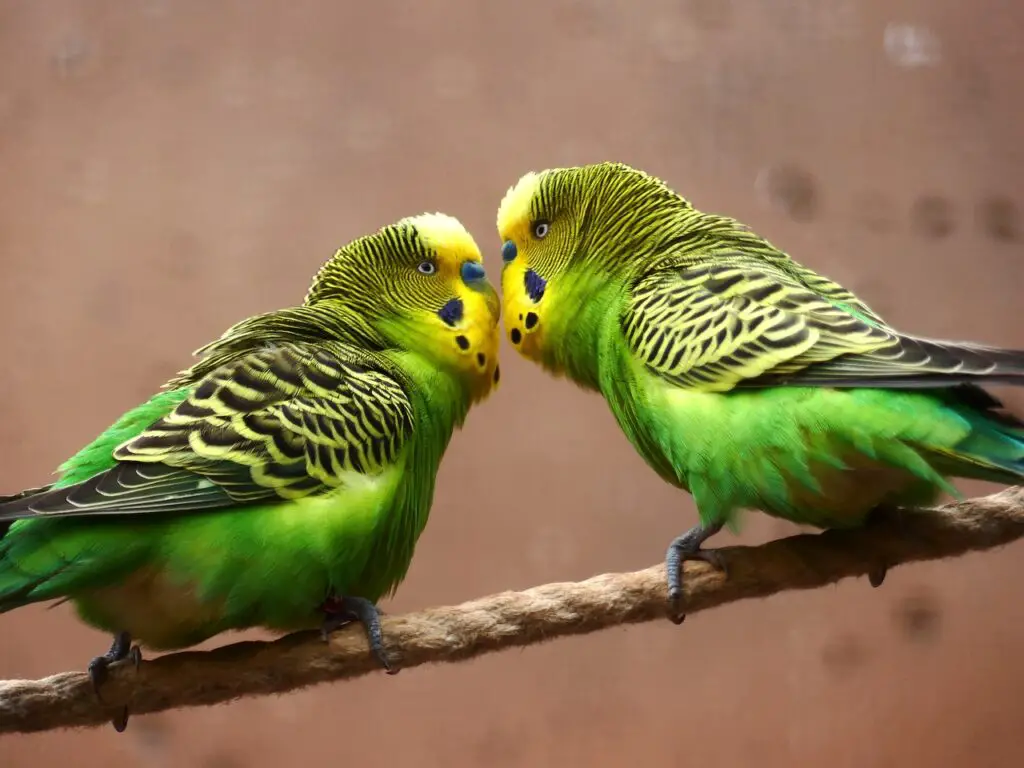
Conclusion
The question of whether parakeets can eat sunflower seeds has a nuanced answer. While sunflower seeds can be offered as an occasional treat, they should not constitute a significant portion of your parakeet’s diet. These seeds are high in fat, and excessive consumption can lead to obesity and other health issues in parakeets. Therefore, moderation is key.
A well-balanced diet for your parakeet should primarily consist of high-quality pellets, fresh fruits, vegetables, and small amounts of seeds and nuts as treats. This ensures they receive the essential nutrients they need to thrive.
Remember that every parakeet is unique, and dietary preferences may vary. It’s essential to observe your bird’s reactions to different foods and adjust their diet accordingly. Always consult with an avian veterinarian or an expert in avian nutrition for personalized advice on your parakeet’s diet.
In providing proper care, attention, and a balanced diet, you can keep your feathered companion happy, healthy, and singing their cheerful tunes for years to come.

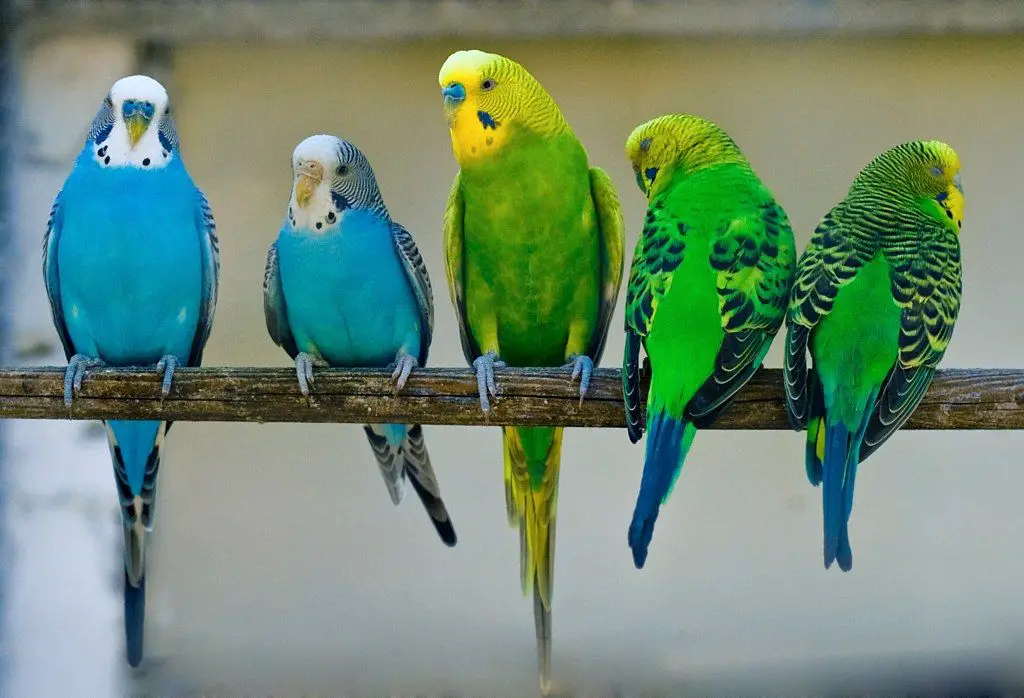
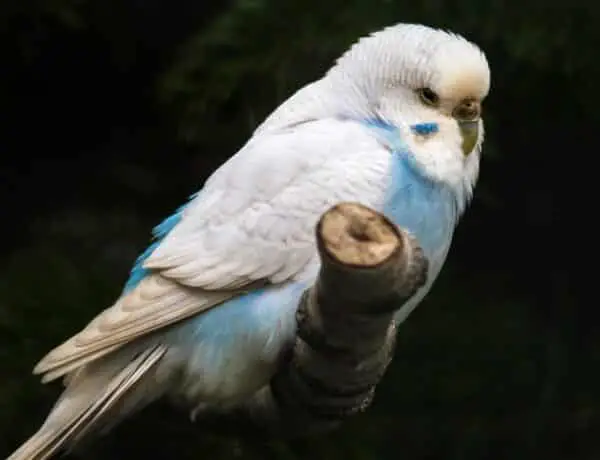
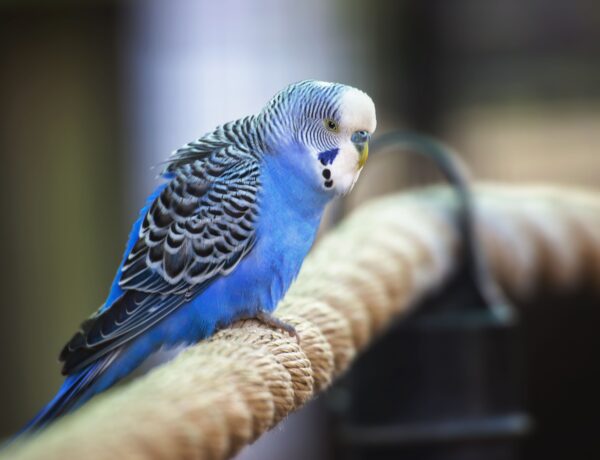
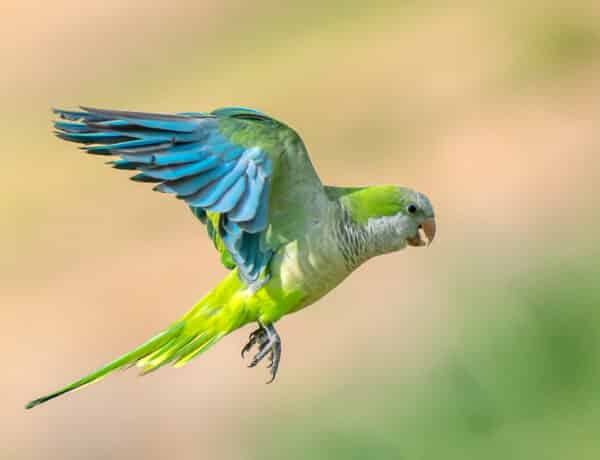
No Comments